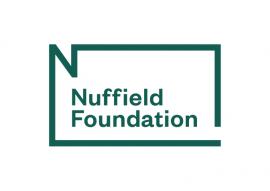Health, Social Care and Childcare
A collection of resources designed to provide ideas and inspiration for teaching mathematics in the context of health, social care and childcare. These resources have been selected as relevant to post-16 vocational learners who are working towards resitting GCSE Mathematics. Five a Day requires students to collect data and use statistical methods to analyse the results using measures of location, measures of spread and statistical diagrams. In An Italian Feast and Sugar and Spice and All Things Nice students are required to design a survey, collect data, and interpret charts and graphs using a context of diet, nutrition and health. Nappy Changing Challenge requires students to generate their own data for analysis and could be done as a project. Dispensing drugs includes some good examples about converting between units and Food for thought and Food and diet can help students understand proportionality. A Guide to Developing Mathematics Skills in the Adult Social Care Workplace can be useful in identifying which mathematical skills are essential for care workers.
View the MEI Contextualisation Toolkit
Five a Day
This resource is designed for students to collect data and then use statistical methods to analyse the results. The activities require that students investigate the extent to which people follow the advice from the Department of Health, which recommends that everyone eats at least five portions of fruit and vegetables each day.
The student sheet contains detailed information and provides a structure for students to conduct their own survey, while the slide show is provided as an introduction to the task.
An Italian Feast
This resource provides statistics about the eating habits of children in Italy and asks students to compare and contrast these with their own eating habits.
Through this activity, students have to interpret charts and graphs, plan how to collect data and design a survey. The resource would link to studies about food, diet, nutrition and health.
Sugar and Spice and All Things Nice *suitable for home teaching*
The resource relates to units on health and growth, teeth and eating, keeping healthy, food and digestion, fitness and health.and focuses on the sugar content of soft drinks and the constituents of a balanced diet. Students use the data provided from secondary sources to answer a series of questions which explore the effect of drinking soft drinks on students' sugar intake and to compare this to recommended daily amounts.
A Guide to Developing Mathematics Skills in the Adult Social Care Workplace
This guide is intended for learning providers who want to help care workers develop better mathematics skills at work.
The guide is divided into two parts.
Part 1 identifies the mathematics that care workers use at work, offers an overview of the adult social care sector, considers attitudes to mathematics in the adult social care workplace, and describes practical approaches to working with adult social care employers.
Part 2 identifies a range of resources likely to be useful to a learning provider and signposts mathematics learning resources which exemplify good practice.
Dispensing drugs
This resource looks at the maths behind dispensing drugs. Students are asked to convert between units.
Food for thought - the eat well plate
The everyday context of food serves as a vehicle for engaging learners in exploring the mathematical ideas of ratios, percentages, fractions, and pie charts which are useful in their vocational areas. Students are asked to agree the main food groups that might be suitable for a healthy diet and then represent the proportions of each food group mathematically and pictorially.
Food and diet
This issue of the Big Picture, from the Wellcome Trust, looks at the role that food plays not only in human physiology but also in the individual's lives. Food is about so much more than sustenance. Food choice touches on many aspects of human life: culture, identity, religion, relationships, mood, fashion and pleasure. This issue looks at what drives people to eat, what happens to food once it has been eaten and what impact humans' dietary choices have on health and wellbeing.
Health, Social Care and Childcare (Other sources of ideas)
A collection of resources which provide ideas and inspiration for teaching mathematics in the context of health, social care and childcare. The resources included in this collection require some adaptation to make them appropriate for the particular audience.



